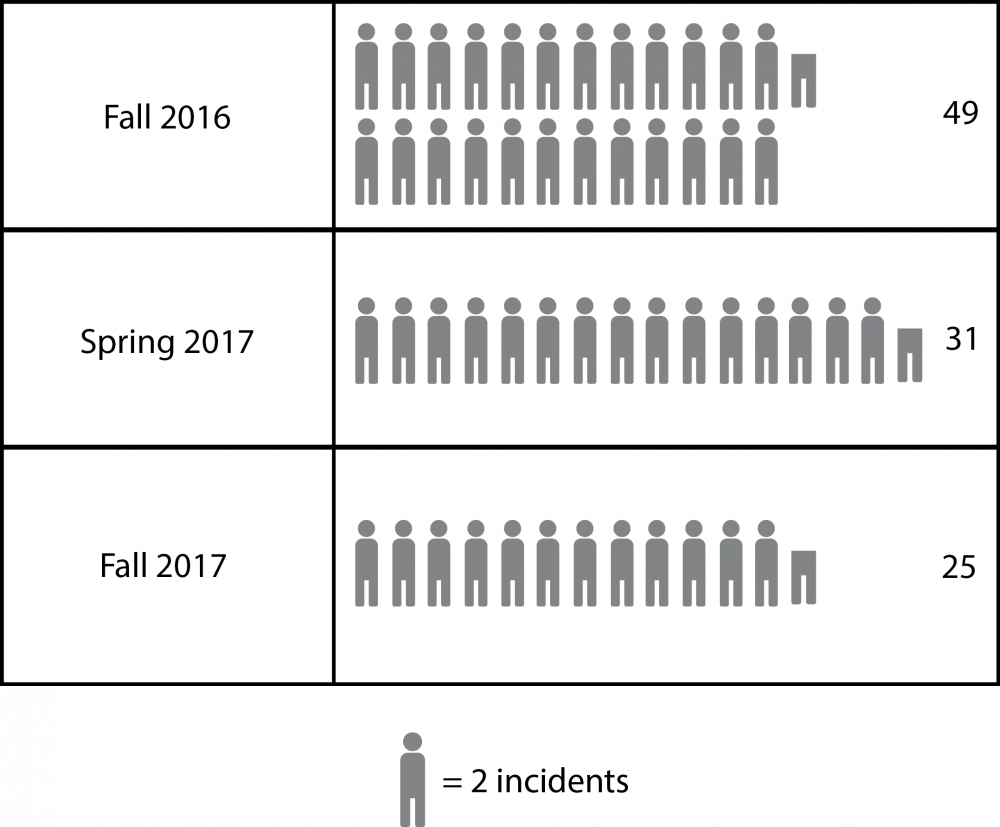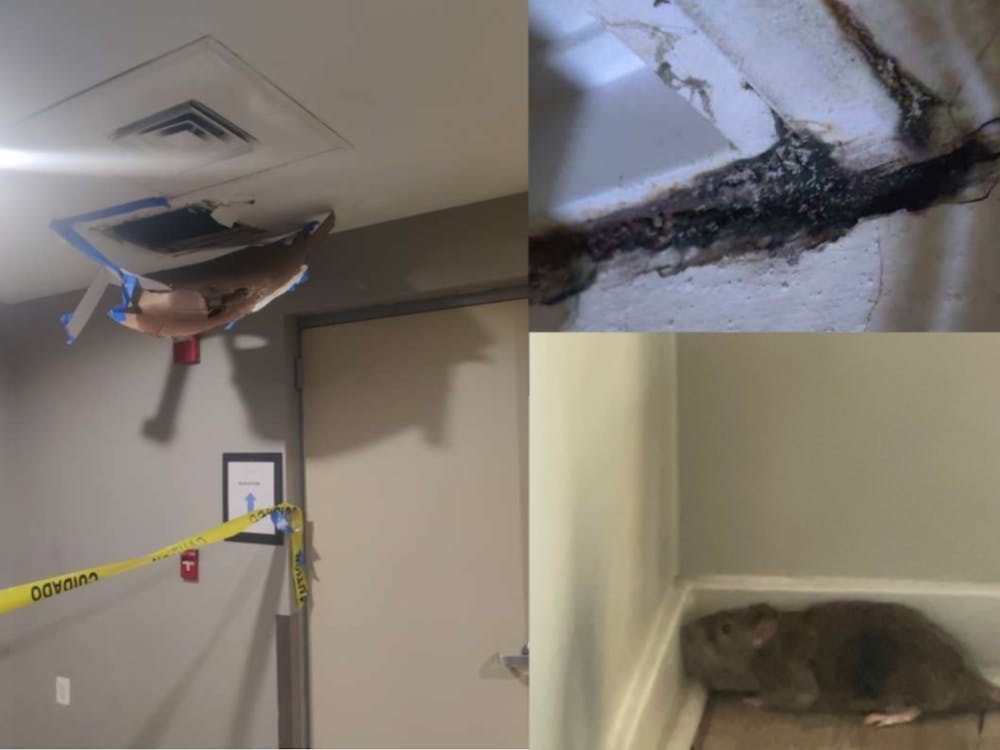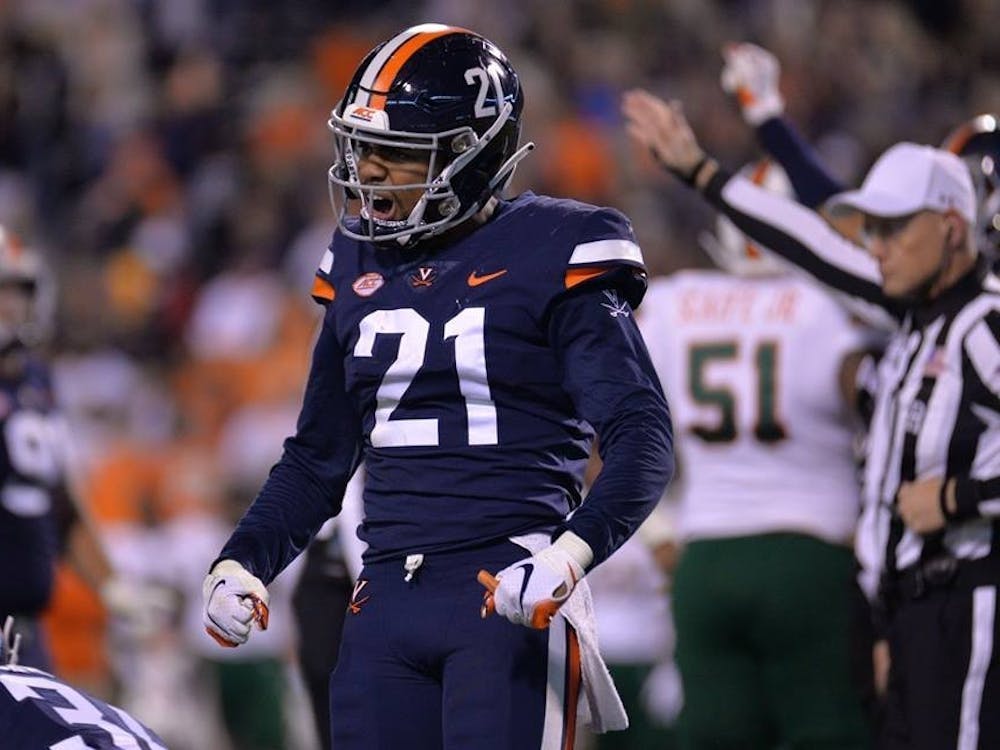In a recently released University report, the anonymous Just Report It system, run by the Office of the Dean of Students, saw a decrease in the number of reported cases of bias, discrimination, hazing and sexual and gender-based violence on Grounds in the fall 2017 semester compared to each of the previous two semesters.
The number of bias-related incidents reported through Just Report It has been gradually decreasing since the fall 2016 semester, when a total of 49 bias-related incidents were reported using the system. In the spring 2017 semester, 31 bias-related incidents were reported. The fall 2017 semester displayed the continued decline, with 25 such incidents reported since August. Eight of these reported incidents were against African-American students.
Though the number of reported incidents is on a downward trend, there were still more reports in the fall of 2017 than in the entire 2015-16 academic year, when there was a total of 14 reports. Nine of those bias-related incidents were reported in the fall semester, and five in the spring semester.
The University defines a bias-related incident as “a threat or act of harassment or intimidation — verbal, written or physical — which is personally directed against or targets a University of Virginia student because of that student’s age, color, disability, marital status, national or ethnic origin, political affiliation, race, religion, sex (including pregnancy), sexual orientation, veteran status or family medical or genetic information.”
Just eight of last semester’s reported incidents were found to comply with the defined scope of the Just Report It system, compared to 27 in the 2016-17 reports, according to the Office of the Dean of Students. These reports were designated as incidents of targeted bias. The 17 reports that did not fully align with the University’s definition of targeted, bias-motivated conduct were placed in other categories of bias-related incidents.
The University has a variety of different avenues through which students can both report bias-related incidents and — for students who do not wish to report an incident of discrimination or sexual violence — seek safe spaces with trained counselors.
Reporting bias related incidents to the University
The online bias-reporting system, Just Report It, was developed in 2005 by a working group appointed and charged by former University President John Casteen, according to Susan Davis, associate vice president for student affairs. It was first introduced in the President’s Commission on Diversity and Equity in 2004 as a way to “create a clear system for ‘incident reporting’” and “[provide] a way to address such cases.”
Since its creation in 2005, the University has encouraged students, faculty, staff and others in the community to report bias-motivated or targeted incidents by filing a report on the University’s Just Report It system.
When a report is submitted online, the dean on call in the Office of the Dean of Students offers support to the student — such as housing or class changes — and gathers additional information about the complaint to determine if there are any violations of University policy. Other University officials are notified by the dean on call, and the Office for Equal Opportunity and Civil Rights connects directly with the reporter. The dean on call remains in contact with the student throughout this process and personally assists the student in making new housing or academic coursework arrangements, if necessary.
According to Dean of Students Allen Groves, the University will contact the alleged perpetrator if they are identified in the report.
“Contact is also made with this individual to hear from them directly and to engage them in an educational conversation regarding community values and living in a diverse community,” Groves said in an email to The Cavalier Daily. “Formal sanction through the University Judiciary Committee is possible if there is a violation of the Standards of Conduct, adequate evidence to establish that violation, and something other than constitutionally-protected expression at issue.”
The University has seen a decline in the number of reported incidents of bias through the Just Report It system. Groves said that this decline may be due to the effects of the August “Unite the Right” rally in Charlottesville on the student body, as well as the influence of various University programs.
“The events of August 11-12 certainly focused our community on the need to reject bias and hate, and other initiatives such as the new implicit bias online training for First-Years and the diversity lecture series sponsored by the School of Engineering and Applied Science also may have helped foster a more inclusive climate,” Groves said.
Impact of Just Report It
Wes Gobar, a fourth-year College student and president of the Black Student Alliance, requested that the University start publishing information online about bias-related incidents with breakdowns by race and month following the discovery of racial slurs written in permanent marker on the doors of students’ rooms, walls and whiteboards across several floors of the Kent-Dabney Dorm Association in September 2016. Gobar also asked that the University study long-term trends in reported incidents through the Just Report It system.
In addition to the writing of racial slurs on doors in the Kent and Dabney dorms, the University also received reports of anti-Muslim vandalism in Brown College and anti-Semitic graffiti outside of the GrandMarc apartment complex during the fall 2016 semester. These acts prompted the creation of campaigns such as Eliminate the Hate, which was formed by a coalition of student organizations to prevent further incidents of hate speech. The University responded to the rise in bias-related incidents by sending an email statement to students condemning acts of bigotry and bias, citing that the spike in incidents was possibly due to the “tone and tenor” of the 2016 presidential election.
As a result of those incidents, the University vowed to compile and publish data from the Just Report It system on the websites of the Office of the Dean of Students and Office for Equal Opportunity and Civil Rights, as well as create a Bias Review Team composed of various University officials to review bias trends, develop an online module on implicit bias and provide further training for faculty and staff on issues of diversity and inclusiveness.
According to the 2017 Diversity Recommendation Index, the University began compiling data from the Just Report It system in an effort “to decrease the alienation of students from University leadership [and] increase the transparency of communication between the administration and its constituents of students, faculty and staff.”
There were eight reported bias-related incidents against African-Americans on the Just Report It system last semester — the most of any group. The University also received four reported bias-related incidents toward Caucasians, one toward a Latinx student and one toward a student of Chinese origin. Religion-based bias-related incidents were also prevalent. Three students who practice Judaism and three who practice Islam reported such incidents. There was also one reported bias-related incident based on a student’s sexual orientation. The most commonly reported type of bias-conduct was verbal harassment.
“I’m glad that they are now collecting this information,” Gobar said. “I think the next step of what needs to be done is making it more accessible, because … it was kind of hard to read and compare to previous semesters. We saw that the African-American [demographic] suffered the most from August through December, but I would like to compare that to previous semesters to see how August 12 has impacted bias-related incidents.”
Gobar said that the report’s data is consistent with the long history of bias-motivated incidents against African-American students at the University. He also said that the white supremacist rallies of August may have had an effect on the large number of reported incidents of bias targeted against African-Americans last semester, and the decrease of reported incidents overall.
“There was an incident of blatant discrimination and bigotry happening right before school that might deter people from [self-reporting] to be sort of seen as a whine, but then it forces bigotry to go into subtler forms or just dormant for a while,” Gobar said. “I think everyone in the wake of August 11 and 12 was trying to put distance between themselves and the people who were out here ... unfortunately they might see that putting the N-word somewhere is just a harmless stroke, which it’s not.”
Future of Just Report It
Emily Babb, assistant vice president for Title IX Compliance/Title IX Coordinator at the University, said that the University requires all incoming first-year and transfer students to receive the same baseline, online, comprehensive Title IX training, as well as alcohol education training. Students are required to retake this training every two years.
Babb also stated that the University has listened to feedback from students and will be launching a new Just Report It website in February that allows students to securely report an incident using their University login.
“The University plans to roll out a new ‘Just Report It’ website in February 2018,” Babb said in an email to The Cavalier Daily. “The website is responsive to feedback that UVA has received from students. The new ‘Just Report It’ will change how students and employees access the page as they will log-in through their NetBadge credential.”
Gobar shared his hopes for the future of Just Report It, as he believes there are several technical modifications that could streamline the system.
“We also discussed having a permanent home for it — right now it’s just sort of an announcement tab [on the ODOS website], so I think we can make it more accessible and easier to track based on semesters, and then reform the process by which these sorts of incidents are processed within the Just Report It system and having a team that sort of analyzes the changes,” Gobar said. “We’d like to see just more progress on that front, and if there has been progress then more announcements about what’s going on with that.”
According to Gobar, the new Just Report It system should also be made more easily accessible with a way to monitor trends in reports of targeted-bias. He suggested that the website include graphs that analyze the data so the University community can compare reported incidents to previous semesters. With this information, the system can be made more informative to both the administration and the student population.
“I think it’s a good program,” Gobar said. “I think that the response could be reformed and made more efficient because whether you get a good response kind of depends on who is the dean on call for Just Report It, and so I think there needs to be better protocol … in tracking trends in bias reports and figuring out where certain things are coming from.”





